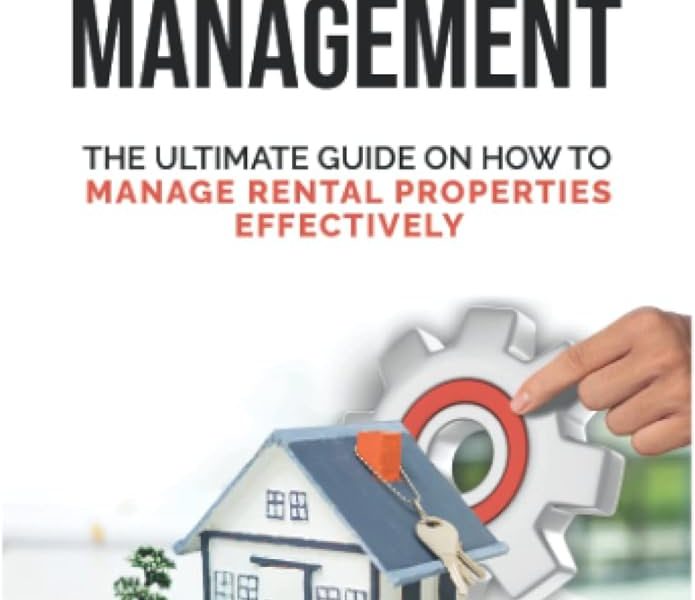The Ultimate Guide to Property Management in Flat Bush
In “The Ultimate Guide to Property Management in Flat Bush,” discover invaluable insights and best practices for effectively managing properties in this thriving region of New Zealand. Whether you’re a landlord seeking expert advice, a property investor looking to make informed decisions, a tenant searching for a secure and comfortable home, or simply a curious individual interested in the world of property management, this comprehensive resource is designed to provide you with the knowledge and tools necessary to succeed. Delve into a wealth of information targeted specifically to the Flat Bush area, and uncover the secrets to successful property management in this dynamic Auckland region.

What is Property Management
Property management refers to the operation, control, and oversight of real estate. It involves the management of residential, commercial, and industrial properties on behalf of the property owner. A property manager acts as a liaison between the owner and tenants, handling various responsibilities such as tenant screening, rent collection, property maintenance, and resolving tenant complaints. The main objective of property management is to ensure the smooth running of rental properties and maximize the return on investment for property owners.
Definition of Property Management
Property management can be defined as the professional management of properties on behalf of the owner. It involves renting out vacant units, ensuring tenant satisfaction, maintaining the property, and complying with all legal and financial obligations. Property managers are tasked with handling the day-to-day operations of the property, allowing owners to enjoy the benefits of their investment without the stress and hassle of managing it themselves.
Role of a Property Manager
A property manager plays a crucial role in the success of any rental property. They act as the owner’s representative, taking care of all aspects of property management. Their responsibilities include finding and screening tenants, collecting rent, ensuring legal compliance, maintaining the property, dealing with tenant complaints, and handling financial matters. They have a deep understanding of the rental market, local regulations, and industry best practices. By hiring a property manager, property owners can have peace of mind knowing their investment is in capable hands.
Benefits of Property Management
Saves Time and Effort
Managing rental properties can be time-consuming and demanding. Property managers alleviate this burden by handling all the tasks involved in property management. From advertising vacant units to screening prospective tenants, dealing with maintenance requests, and handling financial matters, a property manager takes care of it all. This frees up valuable time for property owners to focus on other aspects of their life or invest in additional properties.
Ensures Legal Compliance
Staying compliant with local, state, and national laws, regulations, and codes can be challenging for property owners. Property managers are well-versed in the legal requirements of property management. They ensure that all necessary permits and licenses are obtained, rental agreements are compliant, and proper notice is given for inspections, lease renewals, or terminations. By entrusting legal compliance to a property manager, owners can avoid potential legal issues and costly penalties.
Maximizes Rental Income
One of the primary goals of property management is to maximize the rental income for property owners. Property managers have a thorough understanding of the local rental market and can determine the optimal rental rates for each property. They conduct market research to ensure that the rents charged are competitive yet profitable. Furthermore, property managers are adept at marketing properties effectively, reducing vacancy rates and ensuring a consistent flow of rental income.
Reduces Vacancy Rates
Vacant properties can be a drain on a property owner’s finances. Property managers implement effective marketing strategies to attract potential tenants and fill vacancies promptly. They create attractive property listings, utilize online platforms, and employ traditional advertising methods. Property managers also conduct thorough tenant screening to find reliable and long-term tenants, reducing the risk of high turnover rates. By minimizing vacancies, property managers help property owners maximize their rental income and maintain a steady cash flow.
Responsibilities of a Property Manager
Tenant Screening and Selection
Finding suitable tenants is crucial for maintaining a successful rental property. Property managers perform comprehensive tenant screenings, including background checks and credit checks. They verify prospective tenants’ employment, income, rental history, and references to ensure they are responsible and reliable. By carefully selecting tenants, property managers reduce the risk of late rent payments, property damage, or eviction.
Lease Agreement Management
Property managers oversee the lease agreement process from start to finish. They ensure that all lease agreements are legally compliant, contain essential terms and conditions, and protect the rights of both the owner and tenant. Property managers facilitate the signing of lease agreements, explain the terms to tenants, and ensure that all necessary documentation is completed accurately. They are also responsible for enforcing lease terms, managing lease renewals, and handling lease terminations.
Rent Collection
Collecting rent is a crucial responsibility of a property manager. They establish clear rent payment policies, including due dates, acceptable payment methods, and consequences for late payments. Property managers make it easy for tenants to pay rent by providing various payment options such as online payment platforms or automatic bank transfers. They promptly address any non-payment issues and take appropriate action, such as sending reminders or initiating eviction procedures if necessary.
Property Maintenance and Repairs
Maintaining the property in good condition is essential for attracting and retaining tenants. Property managers coordinate regular maintenance tasks such as landscaping, cleaning, and inspections. They also handle repairs and ensure that any issues reported by tenants are promptly addressed. Property managers have established relationships with reliable vendors and contractors, allowing them to quickly and cost-effectively address any maintenance or repair needs.
Handling Tenant Complaints and Disputes
Dealing with tenant complaints and disputes is a challenging aspect of property management. Property managers act as mediators, listening to tenants’ concerns and finding solutions that satisfy both parties. They address issues such as noise complaints, maintenance requests, and disagreements between tenants. Property managers have the knowledge and experience to resolve conflicts effectively, ensuring a harmonious living environment for all tenants.
Property Inspections
Regular property inspections are crucial for identifying any potential issues or maintenance needs. Property managers conduct routine inspections to assess the condition of the property and ensure that tenants are following the terms of their lease agreements. They document any damages, necessary repairs, or lease violations, and take appropriate action as required. Property inspections help property owners maintain the value of their investment and prevent any potential problems from escalating.
Financial Management and Reporting
Property managers take care of all financial aspects of property management. They keep detailed records of income and expenses, provide regular financial reports to property owners, and manage the property’s budget. Property managers ensure that all bills and payments are made promptly, including property taxes, insurance premiums, and utility bills. They provide accurate and transparent financial statements, allowing property owners to have a clear understanding of their property’s financial performance.
Eviction Process
In some unfortunate cases, property managers may need to initiate eviction proceedings. They handle the legal aspects of evictions, ensuring that all proper procedures are followed and all necessary documentation is prepared. Property managers represent the property owner in court, if needed, and coordinate with legal professionals to navigate the eviction process smoothly and efficiently. While eviction is always a last resort, property managers are equipped to handle it if necessary.
Choosing a Property Management Company
Research and Reputation
When choosing a property management company, conducting thorough research and checking their reputation is essential. Look for companies with positive reviews and testimonials from satisfied clients. Seek recommendations from other property owners in your area and inquire about their experiences with different management companies. A reputable property management company should have a solid track record and a good reputation within the industry.
Experience and Expertise
Experience and expertise are critical factors to consider when selecting a property management company. Look for companies that have been in the industry for several years and have a proven track record of successfully managing properties similar to yours. Property managers with extensive experience bring valuable insights and knowledge to the table, allowing them to handle any challenges that may arise efficiently and effectively.
Services Offered
Consider the range of services offered by the property management company. Ensure that they offer all the necessary services to meet your specific needs as a property owner. These services may include tenant screening, rent collection, property maintenance, financial management, and legal compliance. A comprehensive property management company should be able to handle all aspects of property management, providing you with convenience and peace of mind.
Cost of Services
Evaluate the cost of services provided by the property management company. Different companies may have different fee structures, so it’s important to understand their pricing models. Some companies charge a flat fee, while others charge a percentage of the monthly rental income. Consider the value provided by the company and the services included in their fee. It’s also important to clarify if there are any additional fees or charges that may apply.
Communication and Accessibility
Clear communication and accessibility are vital when working with a property management company. Ensure that the company has effective communication channels in place, allowing you to easily reach out to them with any concerns or questions. Ask about their response times and how they handle emergencies. A reliable property management company should be responsive, transparent, and readily available to address any issues that may arise.

Setting Rental Prices
Factors to Consider
Setting the right rental price for your property is crucial for attracting tenants and maximizing your rental income. Several factors should be considered when determining the appropriate rental price. These factors include the location of the property, its size and features, the condition of the property, the local rental market, and any additional amenities or services offered. By taking these factors into account, you can set a competitive rental price that reflects the value of your property.
Market Analysis
Conducting a market analysis is essential to understand the rental market in your area. Look at properties similar to yours and compare their rental prices. Consider the average rental rates, vacancy rates, and supply and demand dynamics in your local market. Research data from reliable sources, such as real estate agencies or property management companies, to gather accurate and up-to-date information. A market analysis enables you to position your property competitively and attract potential tenants.
Setting Competitive Rental Rates
Based on the market analysis and the unique characteristics of your property, determine a competitive rental rate. It’s important to strike a balance between maximizing rental income and setting a price that attracts tenants. Setting the rent too low may result in missed revenue opportunities, while setting it too high may deter potential tenants. A property management company can provide invaluable insights and guidance in setting the right rental rates, ensuring that you optimize your rental income while remaining competitive in the market.
Marketing and Advertising
Creating Attractive Property Listings
Effective marketing and advertising are essential for attracting potential tenants. Creating attractive property listings is the first step in gaining tenant interest. Include high-quality photographs of the property, showcasing its key features and amenities. Write a compelling and informative description that highlights the property’s unique selling points. By presenting the property in the best possible light, you can capture the attention of potential tenants and generate interest.
Utilizing Online Platforms
The internet has revolutionized the way properties are marketed and advertised. Take advantage of online platforms such as property listing websites, social media platforms, and online classifieds to reach a broad audience of potential tenants. Create an online presence for your property management company and regularly update listings with accurate and up-to-date information. Utilize search engine optimization techniques to improve the visibility of your listings in search results.
Traditional Advertising Methods
While online advertising is effective, traditional advertising methods should not be overlooked. Consider using print media, such as newspapers or local magazines, to reach potential tenants who may not be actively searching online. Place eye-catching advertisements in strategic locations, such as community bulletin boards or local shops. Traditional advertising methods can complement online efforts and help you reach a wider audience.
Word of Mouth Marketing
Harness the power of word of mouth marketing to expand your reach. Encourage satisfied tenants to share their positive experiences and recommend your property management company to others. Provide exceptional service and maintain open lines of communication with tenants to foster positive relationships. A satisfied tenant is more likely to refer your services to friends, family, or colleagues who may be in need of property management.

Tenant Screening and Selection
Screening Criteria
Tenant screening is a crucial step to ensure that you find the right tenants for your property. Establish clear screening criteria that outline the qualifications and requirements tenants must meet. These criteria may include stable employment, a minimum income threshold, a positive rental history, and satisfactory references. By having specific screening criteria in place, you can filter out unqualified applicants and focus on those who are likely to be responsible and reliable tenants.
Background and Credit Checks
Performing background and credit checks is an essential part of tenant screening. A background check can reveal any criminal history or prior evictions, providing insight into the applicant’s character and reliability. Credit checks help assess the applicant’s financial responsibility and ability to meet their financial obligations. Property managers have access to screening services or can partner with third-party screening companies to conduct thorough checks within legal boundaries.
Interviewing Potential Tenants
An in-person or virtual interview allows you to assess the suitability of prospective tenants. Prepare a list of questions that cover important aspects such as their reason for moving, length of intended stay, and any special requirements or concerns. During the interview, pay attention to their communication skills, demeanor, and how well they align with your screening criteria. A personal interaction gives you a better understanding of their suitability as tenants and allows you to address any concerns or questions.
Lease Agreement Essentials
Important Lease Terms and Conditions
An effective lease agreement should include important terms and conditions that protect the rights of both the owner and the tenant. It should clearly outline the duration of the lease, rent payment details, security deposit requirements, and any additional fees or charges. Specify any restrictions or rules regarding pets, smoking, or property modifications. Including essential clauses such as maintenance responsibilities, notice periods, and dispute resolution procedures is vital to ensure a smooth tenancy.
Legal Requirements
Lease agreements must adhere to all legal requirements and regulations. Property managers should stay up to date with local, state, and national laws pertaining to rental properties. Ensure that the lease agreement complies with anti-discrimination laws, fair housing regulations, and other relevant legislation. Property managers can consult legal professionals or use standardized lease agreement templates provided by reputable organizations to ensure legal compliance.
Including Pet Policies
Decide on the pet policies for your rental property and clearly outline them in the lease agreement. Specify whether pets are allowed, any restrictions or size limits, and the requirements for pet deposits or additional fees. Pet policies should take into consideration the property’s suitability for pets and the potential impact on other tenants. By including comprehensive pet policies, property managers can mitigate any potential issues related to pets and maintain a harmonious living environment.
Renewal and Termination Procedures
Lease agreements should provide clarity on the procedures for lease renewal and termination. Clearly state the notice periods required for both the owner and the tenant. Outline the steps involved in renewing a lease and any possible changes to rental rates or terms. Include provisions for lease terminations, including the conditions under which either party can terminate the lease and the required notice period. Clearly defined renewal and termination procedures help avoid confusion and maintain a professional relationship between the owner and the tenant.
Rent Collection and Financial Management
Rent Collection Methods
Property managers employ various rent collection methods to make the process convenient and efficient for tenants. Accepting online rent payments through secure payment platforms allows tenants to pay conveniently from anywhere at any time. Automatic bank transfers or recurring payments can also be set up to ensure timely rent payments. Property managers should clearly communicate rent payment methods and provide tenants with easy-to-follow instructions.
Handling Late Payments
Occasionally, tenants may miss rent payment deadlines or fall behind on their rent. Property managers should have clear policies and procedures in place for handling late payments. These procedures may include sending late payment reminders, applying late fees, or initiating the necessary steps for eviction if the tenant fails to pay. Property managers should strike a balance between enforcing rent payment policies and working with tenants who may be experiencing temporary financial difficulties.
Recordkeeping and Bookkeeping
Accurate recordkeeping and bookkeeping are essential for proper financial management. Property managers maintain detailed records of all income and expenses related to the property. They keep track of rent payments, property maintenance costs, repairs, and other financial transactions. These records are vital for tax purposes, financial reporting, and ensuring the property owner has a clear understanding of the property’s financial performance.
Budgeting and Expense Management
Property managers create and manage budgets on behalf of property owners. They analyze historical data and projected expenses to establish realistic budgets for the property. By carefully monitoring expenses and adhering to the budget, property managers ensure that the property operates within a financially sustainable framework. Effective expense management allows property owners to plan for future expenditures, maintain profitability, and make informed financial decisions.
Property Maintenance and Repairs
Regular Maintenance Tasks
Regular maintenance is essential for preserving the condition and value of a rental property. Property managers coordinate routine maintenance tasks such as landscaping, cleaning common areas, and regular inspections. They ensure that the property meets all safety and health regulations, address maintenance issues promptly, and keep the property in optimal condition for tenants. Regular maintenance tasks include HVAC system checks, plumbing inspections, pest control, and general cleanliness.
Emergency Repairs
Emergency repairs can occur at any time and require immediate attention. Property managers establish emergency repair protocols and have reliable contractors or vendors on call to handle urgent situations. They respond promptly to emergency repair requests, such as plumbing leaks, electrical issues, or security concerns, to minimize any disruption to tenants. Property managers prioritize tenant safety and comfort by ensuring emergency repairs are addressed efficiently and effectively.
Vendor and Contractor Management
Property managers have established relationships with trusted vendors and contractors who provide maintenance and repair services. They coordinate and oversee all vendor and contractor activities, ensuring that work is completed to a high standard and within a reasonable timeframe. Property managers obtain multiple quotes for larger projects to ensure competitive pricing and quality workmanship. Effective vendor and contractor management results in efficient property maintenance and avoids unnecessary costs.
Preventative Maintenance Strategies
Preventative maintenance is key to avoiding major repairs and minimizing disruptions to tenants. Property managers implement preventative maintenance strategies to identify and address potential issues before they escalate. This may include regular property inspections, servicing HVAC systems, conducting roof inspections, and checking for signs of wear and tear. By proactively maintaining the property, property managers save owners money in the long run and provide a safe and comfortable living environment for tenants.
In conclusion, property management plays a vital role in the successful operation of rental properties. Property managers handle numerous responsibilities, including tenant screenings, lease agreement management, rent collection, property maintenance, and resolving tenant complaints and disputes. By minimizing vacancies, maximizing rental income, ensuring legal compliance, and maintaining the property’s condition, property managers provide invaluable support to property owners. When choosing a property management company, it is crucial to consider factors such as research and reputation, experience and expertise, services offered, cost of services, and communication and accessibility. By employing effective marketing and advertising strategies, implementing tenant screening criteria, creating comprehensive lease agreements, and practicing diligent financial management, property managers contribute to the overall success of a rental property.





